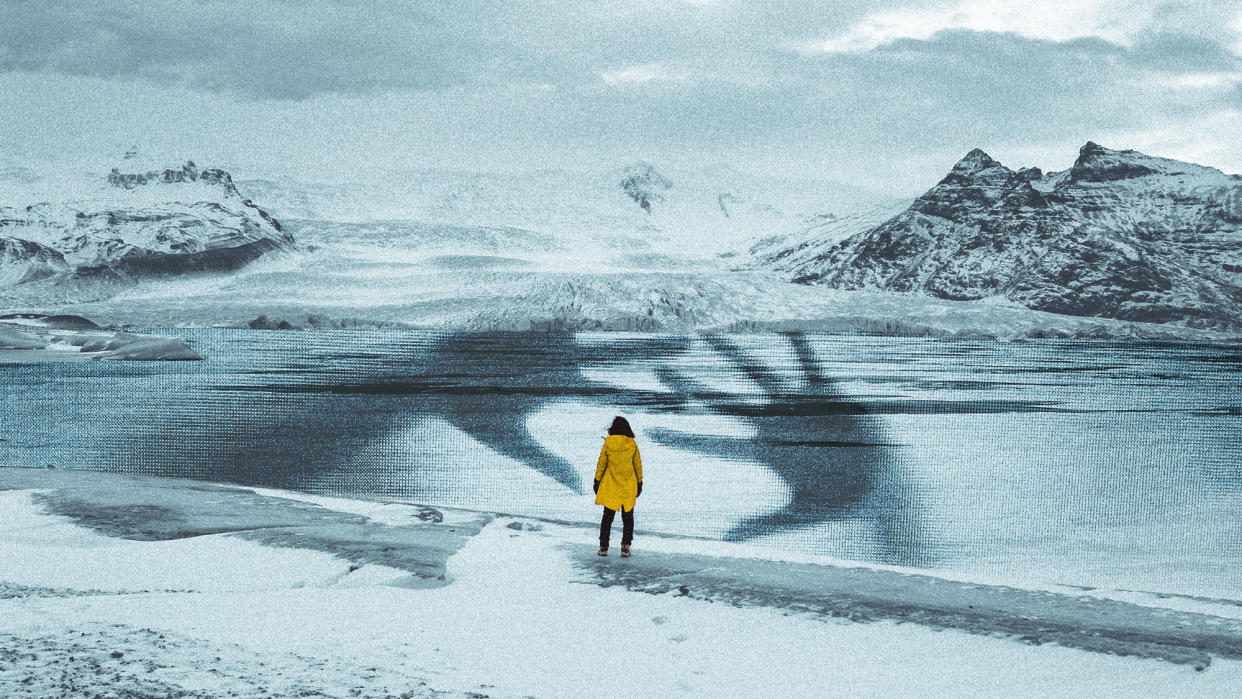How sexual harassment is rife in Antarctica

Eight years after the first female scientist came forward to report sexual harassment and assault while working in Antarctica, women are still being victimised in the region.
Abuse is rife in "the emptiest, windiest, highest, driest, coldest place on Earth", said Scientific American, and efforts to address it have often left survivors feeling unsupported and unsafe.
Repeated harassment
Jane Willenbring was the first to report sexual harassment in Antarctica, said Wired. Willenbring alleged that she was repeatedly sexually harassed on a 1999 expedition by her supervisor, Boston University geology professor David Marchant.
All of this took place "in one of the most remote locations on the planet", said the BBC. Willenbring, who was 22 at the time, reported the abuse in 2016, once she had the security of a job as a professor at the Scripps Institution of Oceanography at the University of California, San Diego. She recalled her three-year-old daughter telling her: "I want to be a scientist just like you!" Willenbring responded by bursting into tears, she told Wired. "I was imagining her going through what I did," she said.
After a lengthy investigation Marchant was fired by Boston University in 2019 for sexually harassing Willenbring. The university said it could not corroborate her additional claims of physical and psychological abuse. Marchant insisted that he had "never" sexually harassed anyone.
In addition, a glacier that had been named after Marchant was renamed. In 2018, the US Board on Geographic Names voted unanimously to strip Marchant's name from the glacier. It is now called Matataua, after a nearby mountain peak.
'Culture of abuse'
After Willenbring went public, more women started to come forward. In 2018, five women alleged sexual harassment, sexual coercion and bullying on the inaugural Homeward Bound, an Australian leadership-development voyage to Antarctica for women in science and technology fields. Speaking to Grist, one claimed to have woken up next to a naked crew member with "no memory of what had happened".
Writing for Scientific American in December, Elizabeth Endicott also recalled the sexual harassment she suffered in the region. Working as a janitor at McMurdo station in Antarctica, she found a used condom left in her gloves with "for jano girl" written on it. Then she found paper towels "scrawled with slurs and threats and stuffed in the pockets of my patched puffy coat".
When she complained, the meetings were "embarrassing and demoralizing", and the people in the meetings treated her "like an inconvenience". They asked her to move to a different station and when she said she didn't want to, they offered her a payout to go home, attempting to solve the problem "by asking me to disappear".
The reason women "don't want to talk is because they've been gaslit this whole time, where everyone's saying, 'It didn't happen. I don't want to hear it. I don't believe you,'" Meredith Nash, a University of Tasmania sociologist, told Wired.
"Efforts to address these problems have been slow, and responses from the organizations and institutions involved have often been inadequate, leaving survivors feeling unsupported and unsafe," said The Daily Climate. "Despite investigations by government agencies and academic institutions", there is a "persistent culture of intimidation and abuse".
New rules
When Nash collected surveys from more than 150 women scientists about the treatment they faced while conducting remote field work in Antarctica, 63% of them reported being harassed, and about half said they’d never spoken out about what had happened. The harassment they reported ranged from "physical assault to microaggressions", said Wired.
In 2022, the US National Science Foundation published a report that found that 72% of current and former female employees believed sexual harassment and assault in Antarctica is a problem, that 59% of women had experienced it themselves, and 95% knew someone directly affected.
In November 2023, a Homeward Bound expedition set off for Antarctica with dozens of women on board. The organiser, Fabian Dattner, told Wired that "more than 60 new rules had been put in place to ensure a safe and productive environment". Crew members were no longer allowed to mix with scientists, there was a psychologist and psychiatrist on board, and the ship's bar would close at 9.30pm.


